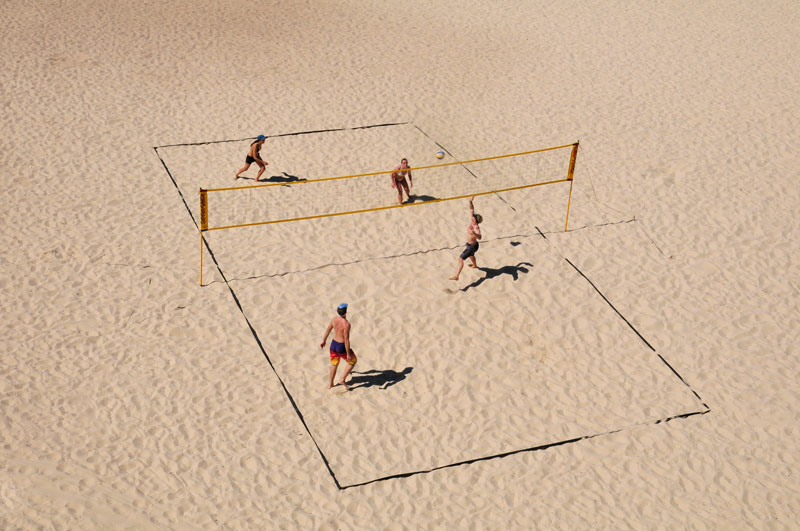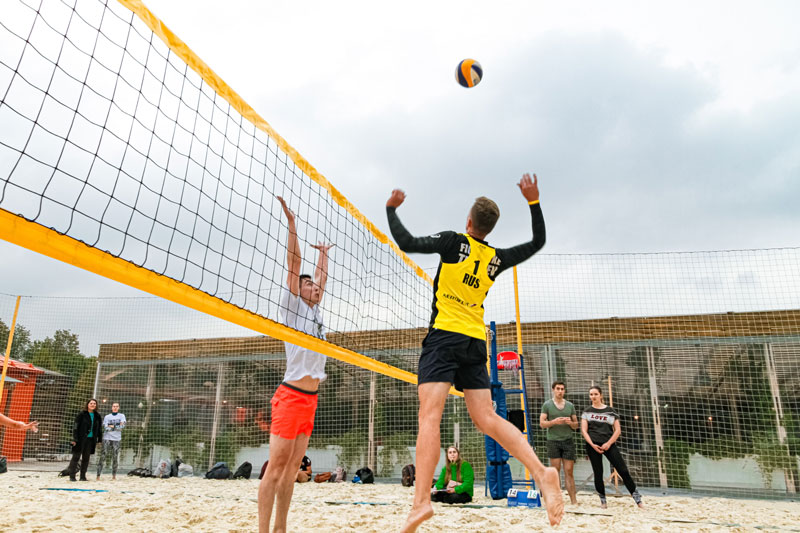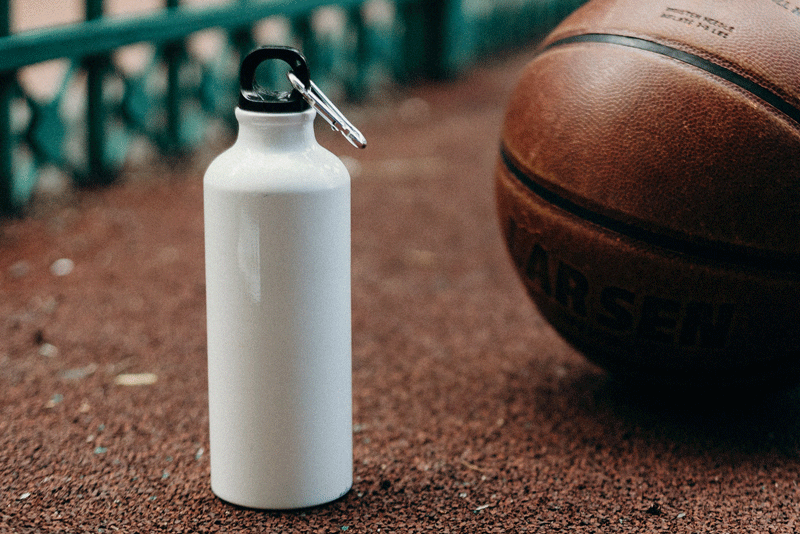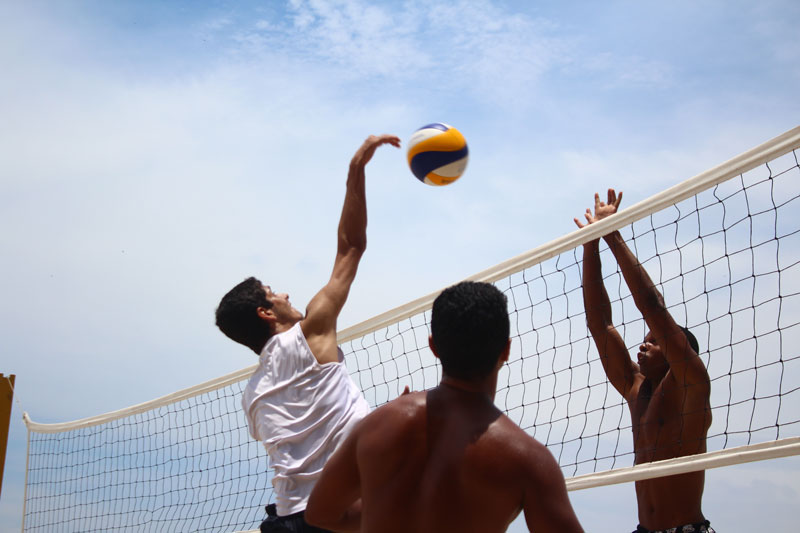Top 15 Best Beach Volleyball Training in Winter 2024
When the winter chill sets in, beach volleyball enthusiasts often put off their training until warmer days return. However, the winter months offer a unique opportunity for beach volleyball players to gain an edge.
Discussing the benefits of beach volleyball training in winter season, this article provides valuable insights for enthusiasts.
Here are my 15 top tips for surviving the chilly winter months on the sand.
So Let’s start!

Maintaining Skill Levels
Continuing training during the winter is essential because it ensures the maintenance of your skill levels.
Taking a break for several months can result in the loss of muscle memory and technique, potentially setting you back when the season starts.
Physical Conditioning
During winter training, physical conditioning can often be overlooked amid the competitive season.
However, improving agility, strength, and endurance can make the transition back to the sand easier.
The best style of conditioning for beach volleyball players is High Intensity Interval Training (HIIT).
Socks
Wearing socks is an effective way to prevent sand from getting into your shoes while playing beach volleyball.
It’s important to ensure that you have quality sand socks. Socks are vital for beach volleyball training in winter.
Consider opting for wetsuit boots rather than volleyball-specific sand socks.
Opt for wetsuit boots that are 5mm thick instead of 3mm, and, on exceptionally cold days, you can further insulate by wearing a pair of wooly socks inside.
Chilly Fingers
Before and after training, it’s good practice to have a pair of gloves available, although I prefer not to wear them during the training sessions.
It might be worth considering having a reusable hand warmer with you as a precaution for emergencies.
Keep Moving
When planning your sessions, it’s advisable to gradually build up the intensity. Properly warming up takes time, so avoid jumping into something too intense too soon to minimize the risk of injury.

During winter, it presents an excellent opportunity to focus on accumulating a substantial number of high-quality reps. When planning your training sessions, ensure that no one is left standing around for extended periods in the cold.
Also, it’s advisable to keep your water breaks short and frequent, as this approach tends to be more effective.
Always Drink
Having a hot drink in a flask or a reliable keep cup ready for when needed can provide great comfort after a cold training session.

I enjoy a nice herbal tea, but it’s important to remember not to neglect the importance of staying hydrated with water.
Indoor Facilities
Training during the winter season can pose challenges because of the weather.
If you’re seeking consistent practice on indoor beach volleyball courts, it’s a good idea to explore the option of joining a facility or league that offers access to indoor courts.
Strength and Conditioning
Giving priority to strength and conditioning workouts is important.
Focusing on training the leg, core, and shoulder muscles specific to beach volleyball is crucial for achieving better performance, as it establishes a strong foundation.
Layers
Like ogres, beach volleyball players should have layers, including a good base layer for training.
It’s recommended to have various layers like a light jumper for warming up and low-intensity activities, heavier layers for when you stop, and spare clothes to change into.
I find a Dry Robe to be extremely useful, especially after training and when I’m coaching; it’s something I appreciate.
Alternatively, you can consider opting for a rugby sub jacket, which is a more budget-friendly option, based on your financial preferences.
Skill-Specific Drills
Incorporating skill-specific drills into your training schedule is highly recommended.
Practice serving, passing, setting, spiking, and blocking to refine your technique and build muscle memory.
Set Goals
When preparing for winter training, it’s a wise approach to set realistic goals.
Clear objectives can be a motivating factor when you aim to improve a specific skill or enhance your physical fitness.
Mental Preparation
Engaging in mental training can significantly enhance your game during the winter season.
It’s important to identify strategies for staying focused, managing stress, and building resilience as part of your mental preparation.
Having mental toughness can make a significant difference in beach volleyball.
Video Analysis
Taking notes about your training sessions and matches is a valuable practice as it allows for later analysis.
Reviewing your performance and identifying areas for improvement during the winter months enables you to track your progress effectively.
Training Partners
Finding a training partner who shares your enthusiasm for winter volleyball is a beneficial step.
Training with others can provide motivation, competition, and valuable feedback.

Visualize Success
Using visualization techniques to imagine winning at beach volleyball is a method that can enhance both confidence and performance.
MY BIG TIP FOR BEACH VOLLEYBALL TRAINING IN WINTER
A valuable tip to keep in mind is the importance of staying warm and even breaking a sweat during your training, as it can make a significant difference in avoiding discomfort and chilling afterward.
Ensuring that you have warm, dry layers available to put on afterward is a good practice, as well as contemplating changing out any damp clothes for added comfort and warmth.
I hope all these tips are helpful for everyone. If you believe there’s something I might have overlooked, please feel free to share your thoughts and suggestions in the comments below.
Conclusion
In conclusion, winter provides a unique opportunity for beach volleyball enthusiasts to enhance their skills and maintain peak performance. The 15 tips discussed cover various aspects, including skill maintenance, physical conditioning, appropriate attire, gradual intensity buildup, hydration, indoor facilities, strength and conditioning workouts, layering, skill-specific drills, goal-setting, mental preparation, video analysis, training partners, and visualization. A crucial reminder is to prioritize staying warm and breaking a sweat during training, ensuring the availability of warm, dry layers afterward. By embracing these tips, beach volleyball players can make the most of the winter season to sharpen their abilities and gain a competitive edge.
Also Read: Hardest To Easiest Positions In Volleyball [Guide 2024]
